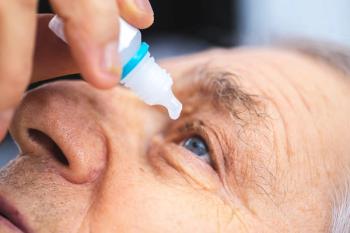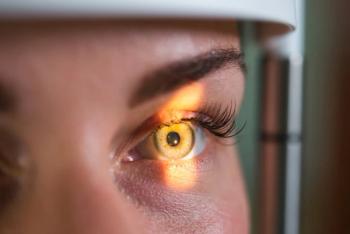
Researchers identify risk factors for retinal detachment in Marfan syndrome after pediatric lens removal
The French study found that a complete capsular removal seemed to be the safer option for pediatric patients with Marfan syndrome in terms of risk of retinal detachment.
Youssef Abdelmassih, MD, and colleagues from the Pediatric Ophthalmology Department, Rothschild Foundation Hospital, Paris, reported that pediatric patients with Marfan syndrome with a long axial length are more likely to have a retinal detachment develop after lens surgery.1
The investigators undertook this retrospective case control study to determine the risk factors for a retinal detachment after lenses are removed from these patients. The study included children younger than 18 years who had Marfan syndrome and underwent a surgery to remove the lens.
The investigators collected the patients’ clinical and surgical characteristics from their electronic files, which included age, axial length, gender, number of surgeries they underwent, intraocular lens (IOL) implantation at the first surgery, complete removal of the capsular bag and final best-corrected visual acuity. The study’s main outcome measure was the determination of the risk factors associated with development of a retinal detachment.
The study included 158 eyes of 85 children. Of those, a retinal detachment developed in 35 eyes (22.2%) during follow-up; detachments in both eyes developed in 11 patients (45.8%), the investigators reported. The patient ages at the time of lens removal surgery did not differ between groups.
The children in whom a retinal detachment developed had a higher axial length (p<.001), longer follow-up, IOL implantation and capsular residue.
“Multivariate analysis identified capsular residue (odds ratio [OR] 16.8; 95% confidence interval [CI], 1.9-148.8; P=0.01), and axial length (OR 1.3; 95% CI, 1.01-1.7; P=0.03) as predictors for development of a retinal detachment,” the authors said.
Based on those findings, they concluded that children with Marfan syndrome with increased axial length were more likely to develop a retinal detachment after lens surgery. “When considering lens removal surgery in a pediatric population presenting with Marfan's syndrome, a complete capsular removal seemed to be the safer option regarding the risk of retinal detachment,” they advised.
Reference:
Abdelmassih Y, Lecoge R, Hassani E, et al. Risk factors for retinal detachment in Marfan syndrome after pediatric lens removal. Am J Ophthalmol. 2024; published online May 29; doi: https://doi.org/10.1016/j.ajo.2024.05.003
Newsletter
Want more insights like this? Subscribe to Optometry Times and get clinical pearls and practice tips delivered straight to your inbox.








































